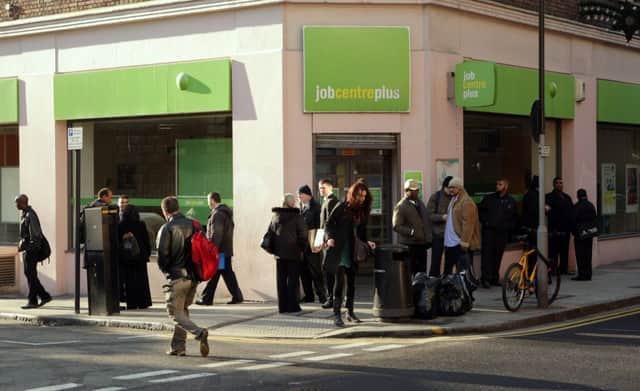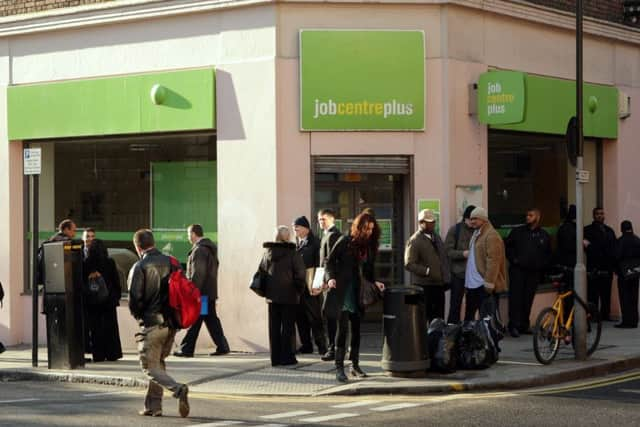Paris Gourtsoyannis: Is it time for a basic income for all?


It’s ordinariness does nothing to betray that for a few years in the 1970s, Dauphin and its residents were at the forefront of a fascinating economic, political and social experiment, one that is gaining interest across the west as a changing world challenges the relationship between the state and its citizens.
Universal Basic Income, or UBI, is a child of the 1960s. As post-war western governments implemented and strengthened social safety nets, several considered whether it wouldn’t be easier and fairer simply to guarantee a minimum income for those who couldn’t earn enough to live, or found themselves unable to.
Advertisement
Hide AdAdvertisement
Hide AdIt may sounds like runaway left-wing fantasy, but many of the earliest proponents of UBI were on the right. An early fan was economist Milton Friedman, who joined libertarians in welcoming an idea that promised to sweep away much of the west’s tangled and growing thicket of welfare programmes.


Promoted, from opposite ends of the political spectrum, by the governments of Richard Nixon and Pierre Trudeau, half a dozen pilots took place across North America in the 1970s, but most were targeted or randomised in ways that limited their scope.
Dauphin was the only place where the concept of UBI was given full expression: every resident in the municipality was effectively guaranteed an income of $15,000 per year. For the five years the scheme ran from 1974, just under a third of people in Dauphin received what was called “Mincome”. For many of the town’s seasonal, agricultural workers, the top-ups to self-employed earnings were modest – the difference between being able to put cream in your coffee or not, one recipient later recalled.
But when Canada elected a conservative government in 1979, the experiment was quietly halted and quickly forgotten about, without any study of its impact. It wasn’t until 2011 that Evelyn Forget, an economist at the University of Manitoba, returned to the Mincome experiment and dug out dusty boxes of data for thorough analysis. Her findings, presented in a paper called ‘The town with no poverty’, were clear: inasmuch as it hadn’t produced a breakdown in capitalism, Mincome had been a success, and not just in pure economic terms.
There was a significant fall in hospitalisation rates, particularly in relation to mental health. More young people finished school. But there was no jump in fertility caused by the dissolute having babies in order to cash another cheque, nor was their any increase in family breakdown as non-earning spouses were freed from their financial reliance on the household breadwinner. The wider pool of evidence from other trials confirmed that while there was a decline in the average number of hours worked per household, that was mainly a reflection of women taking more time off work to care for newborns, with only a small reduction for primary earners.


Now the idea is coming to the fore again. It isn’t hard to see why, in the midst of the political crisis that followed an economic collapse. UBI is a seductively simple utopian concept that can be easily explained in an 80 second Facebook video.
In a referendum last year, Switzerland rejected a proposal for a monthly basic income of 2,500 francs per adult and 650 per child, but more than half a million people voted in favour. In the Dutch city of Utrecht, 250 jobseekers are receiving a guaranteed income of €960 per month. Now Finland has launched the largest UBI trial ever in Europe, paying 2,000 unemployed adults €560 per month in lieu of benefits for the next two years, even if they find self-employed or part-time work. Scotland could be next, with Fife and Glasgow councils exploring the possibility of UBI trials within the next two years.
Proponents of UBI argue that because it isn’t withdrawn as recipients begin to earn, the incentive to take paid work is greater than under a means-tested benefits system. Recipients can take part-time or shift work more easily to ease themselves back into the job market, and still have it be worth their while. As well as de-stigmatising unemployment, UBI is also much easier to administer than a complex system of benefits and sanctions. And while tax credits changed the lives of those on low earnings, critics claim they let businesses off the hook for paying low wages. UBI could have the opposite effect, forcing employers to boost wages for the lowest paid.
Advertisement
Hide AdAdvertisement
Hide AdOn the other side of the argument, critics claim UBI would push up prices, and could have particularly damaging distorting effects at the bottom of the rental market. It would obviously be hugely expensive, with the only costed proposal from the Green party requiring as much as £160bn in additional revenue.
Beyond the practicalities lies a broader question: without the basic economic imperative to drive changes in the economy, move populations and spur innovation, would the world be the same place? Would the shift away from an agrarian economy have happened at all if everyone had earned enough to live on 150 years ago? Would the incentive to urbanise and industrialise have been as strong?
Politically, universal services are controversial and difficult to defend when public spending is under pressure. Scottish voters know that free prescriptions, free tuition and free personal care are expensive and don’t advance fairness as much as is made out. Polling this week suggests a majority wanted to see Scotland’s flagship universal spending commitments revisited. And the political failure to either reshape the NHS fast enough, or fund it adequately to keep up with demand, means the UK is edging to a discussion about financial contributions from patients.
The past year has put beyond doubt that one of the greatest political challenges to western democracies will be how they respond to the loss of jobs through globalisation and automation. Protectionism and populism is one response to that challenge. In the long run, though, policymakers may have to consider the solution first tried out on the people of Dauphin half a century ago.